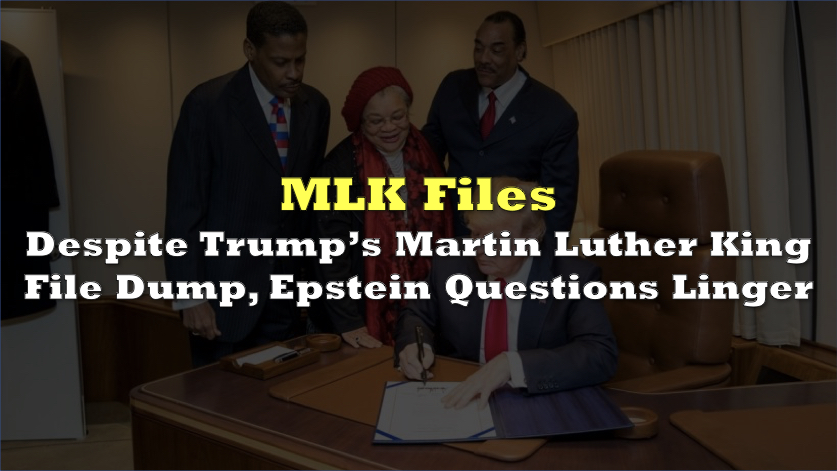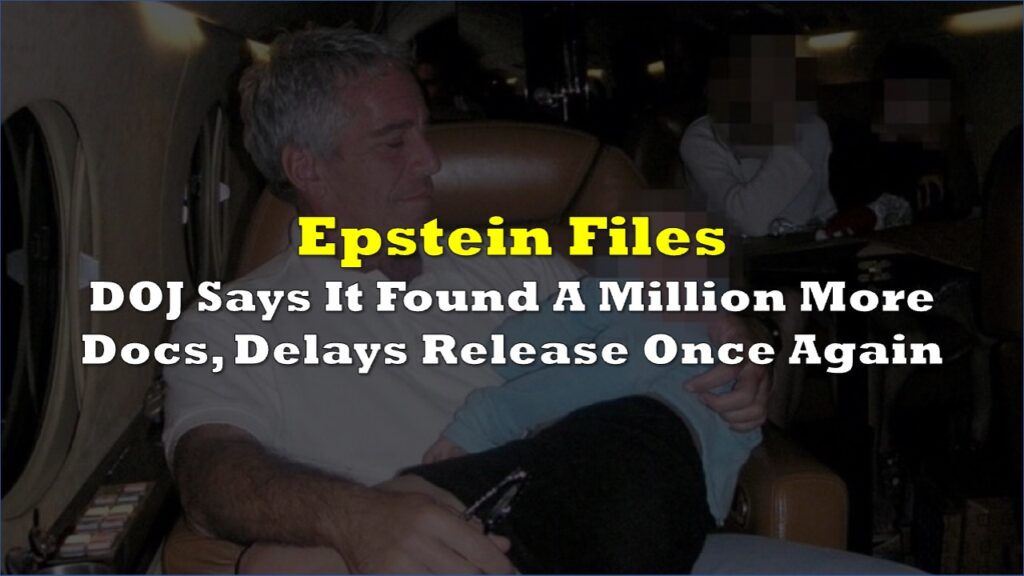The Trump administration pushed 240,000-plus pages of FBI records on Martin Luther King Jr. into the open, framing it as “unprecedented” transparency.
The files, sealed since 1977 under a court order, document Hoover-era surveillance that King’s children describe as “invasive, predatory, and deeply disturbing.”
Martin Luther King III and Bernice King reviewed the material before release. While they say they support transparency and historical accountability, they rejected any attempt to weaponize the dump against their father’s legacy. The family’s grief remains “intensely personal” 57 years on.
“These actions were not only invasions of privacy, but intentional assaults on the truth,” they warned. King’s family called for empathy and restraint, and repeated their belief that James Earl Ray “was not solely responsible, if at all.”
Ray pleaded guilty, then recanted. A 1999 Memphis civil jury found King was killed by a conspiracy. In 2000, the Justice Department said it “found nothing to disturb” the original 1969 conclusion. The Kings now ask if the new files “offer additional insights beyond the findings our family has already accepted.”
The Southern Christian Leadership Conference echoed the objection, arguing the FBI illegally wiretapped and bugged civil rights leaders to discredit the movement.
The Office of the Director of National Intelligence, led by Tulsi Gabbard, praised President Donald Trump for forcing the issue, noting many documents were digitized for the first time. Trump had ordered the declassification of JFK, RFK, and MLK records after taking office, delivering JFK files in March and partial RFK files in April.
Distraction from Epstein?
However, critics see another motive. “Trump releasing the MLK assassination files is not about transparency or justice,” Rev. Al Sharpton said. “It’s a desperate attempt to distract people from the firestorm engulfing Trump over the Epstein files.”
On Friday, Trump told the Justice Department to release grand jury testimony in the Epstein case but stopped short of unsealing the full record.
Attorney General Pam Bondi showcased a photo-op with Alveda King, the niece who praised Trump’s move. “Grateful to President Trump,” she said, aligning with the transparency narrative and breaking with King’s children yet again.
The newly opened FBI records depict a years-long COINTELPRO campaign that “discredit[ed], dismantle[d] and destroy[ed]” King and the broader Civil Rights Movement, detailing wiretaps on his phones, bugs in hotel rooms, informant reports, and internal Hoover-era memos aimed at “neutralizing” King’s influence. They underscore how surveillance intensified after the 1964 Civil Rights Act and 1965 Voting Rights Act, as King shifted toward economic justice and antiwar activism.
The legal posture shifted weeks ahead of schedule. The Justice Department asked a federal judge to lift the seal before its 2027 expiry, creating a sudden trove for scholars, journalists, and conspiracy theorists alike.
Information for this briefing was found via The National Post and the sources mentioned. The author has no securities or affiliations related to this organization. Not a recommendation to buy or sell. Always do additional research and consult a professional before purchasing a security. The author holds no licenses.









